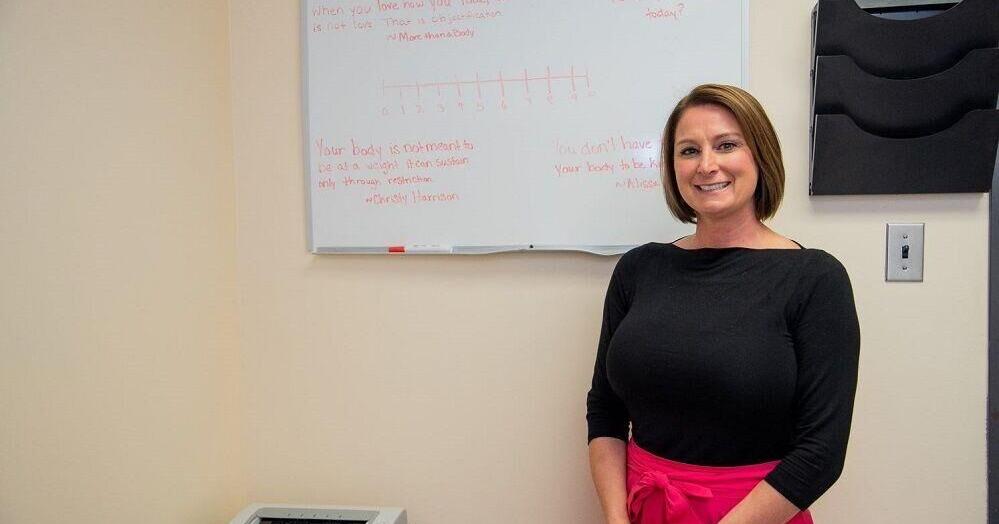
Holiday feasts can feed unhealthy eating habits. But the Fox Army Health Center clinical dietitian, Heather Hough, has healthy advice.
She said you don’t need to eat only boring foods, deprive yourself, or take your treats with a side order of guilt. By practicing a few defensive cooking and eating strategies, you can navigate the holidays without making go-on-a-diet one of your New Year’s resolutions.
Hough shared advice for making the healthy – but still tasty – food choices on Thanksgiving Day:
• Consider your food options and make a plan. You can consider anything you want when planning meals. Maybe decide on a main dish such as the protein and build the menu around that item. For example, you are likely going to want to pair different side items with a main dish of turkey versus a main dish of lasagna. If it is your menu to plan, you can consider what you want or what others want. If you are looking for an excuse not to make so many options, you might try telling your guests the main dish and requesting their ideas for side dishes. This would ensure a popular menu.
• Modify holiday traditions and savor the foods you really love. If you, your family, or guests are open to nontraditional holiday menus, anything could be your theme. Get creative and do whatever works. Maybe an appetizer dinner, soup and salad bar, barbecue theme, or pizza night. Traditions are simply the observance of customs. Try planning something different.
• Offer healthy food options for everyone. Health issues and how one navigates a holiday meal will vary depending on that person’s situation. If you are aware of dietary restrictions of your guests, you might be able to serve normal options without making many changes. For example, if someone has Celiac disease, they need to avoid gluten. Potatoes are naturally gluten free and would be a common holiday side dish that needs no alteration. However, sweet potato pie might need an alteration to the crust to make it gluten-free. Depending on your individual capacity, you might find out about dietary restrictions beforehand to allow you to plan.
• Navigate any personal health and nutrition barriers. The holidays will create different barriers for different people. Common barriers include traveling, having guests in your home, added social events, and changes to schedule and routine. These barriers can potentially impact your sleep, movement and eating routines. When one of these areas is impacted, it might affect the other routines as well. For example, if you have an evening event and stay up later than usual, you get less sleep, and this could impact both your movement and food the following day. It is not a bad thing. It simply is the outcome. There is no need to judge it or avoid events. Just consider how to navigate the barriers that come up.
Hough said it’s important to pay attention to what really matters. Although food is an integral part of the holidays, having a focus on family and friends and having memorable experiences is equally important.
She added these tips for celebrating while sticking with your healthy habits over the holidays:
• Control what you can. If it is your menu to plan, plan it. If you are traveling and you can continue to get exercise in, go for it. If you want to plan events to keep your normal bedtime routine intact, make it happen.
• If you cannot control it, let it go. If it is outside your control, the stress of trying to control it could be problematic to mental health. Try to let it go. Some examples: Let’s say you are at an event with no available vegetables, find something else to eat. Your health and nutrition are not built or broken by one meal. Taking your own food or not eating at an event are stressful ways to handle that situation. Let it go. Find something that looks good to you and enjoy. If you have guests stay for the holiday, you might not be able to head out to the gym at your normal time or attend the class you love. Let it go. Alter your movement to include them or don’t.
• For parents, consider creating an environment of food exploration throughout the year. Trying new foods can be difficult for some children. Holiday menus are often filled with foods that you might not be exposing your children to on a regular basis. Online resources to create an atmosphere of exploration without stress include the Ellyn Satter Institute and Kid Food Explorers on Instagram and Facebook.
For more information about healthy eating and nutrition, call 256-955-8888 or email [email protected].
The Commander’s Ready and Resilient Council serves as the Redstone senior commander’s platform to fulfill the Army’s ready and resilient objectives. The council includes four working groups: Physical Health, Behavioral Health, Spiritual Resiliency, and Family and Social Resiliency.
